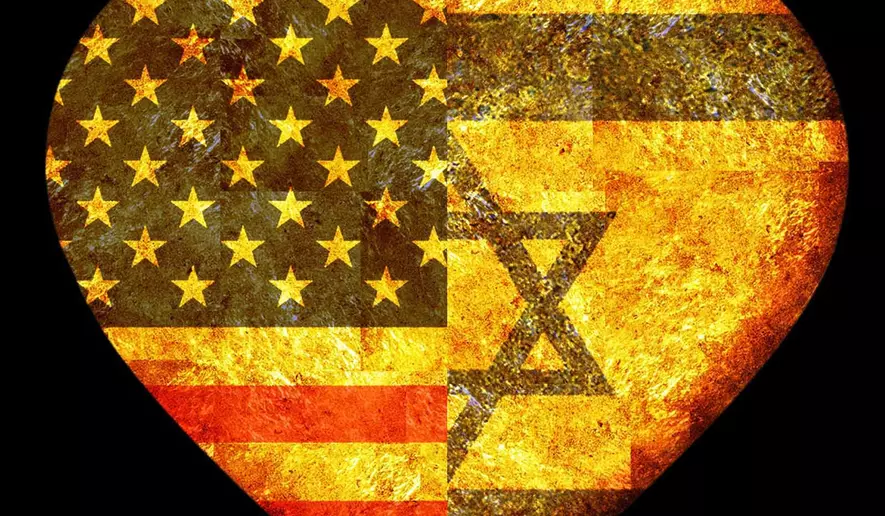
Op-ed originally published at Washington Times on January 2, 2023. See Part 1.
A 2021 Barna poll revealed that younger evangelicals are less supportive of Israel than older evangelicals (though still more supportive than their secular counterparts). So why should young evangelical Christians not only oppose antisemitism but also care about the state of Israel?
In part 1 of this op-ed, I argued that (1) young evangelical students should beware of getting sucked into the world’s oldest hatred but instead be a blessing to the Jews, (2) they should remember and be grateful for the Jewish foundations of their faith and (3) they should recognize the importance of the state of Israel as a guardian of Jews in the world today. But there is more.
Young evangelicals must come to grips with Israel’s unique past, present and future. When you visit Israel, there is something unique about this land, which is why we call it “the Holy Land.” Unlike any other nation, it has a one-of-a-kind past. This is Bible country. This is the land God promised to Abraham and his seed. This is where the patriarchs walked, the place where Moses led the children of Israel. This is where Joshua battled, the sons of Jacob settled, the judges delivered, David and Solomon ruled, where the northern and southern kingdoms were situated, where the temple was built, where God chose to make his glorious presence known; this is where God-anointed priests ministered, and prophets thundered; this is where our Messiah was born, worked, walked, taught, was crucified, and was raised in fulfillment of prophecy; this is where the disciples were trained and sent out to the world to reach gentiles like us!
For Christians and Jews, no other land has a past like this. Rome, London and Washington do not even come close!
But Israel also has a unique present. Here we confront yet another stunning fact of Jewish history — that although they were scattered among the nations for 2,000 years without a homeland, they not only miraculously survived as a people, but have also been regathered and were reborn as a nation in 1948. Historian Barbara Tuchman put it this way: Israel “has confounded persecution and outlived exile to become the only nation in the world that is governing itself in the same territory, under the same name, and with the same religion and same language as it did three thousand years ago.”
Many Christians view this as a fulfillment of biblical prophecy. Reformed theologian R.C. Sproul wrote that “our Lord talked in his prophetic utterances about a period in which that exile of the Jewish nation would end, and they would return to Jerusalem, which has taken place in our own very day.” And even though it is now a secular state, it is the homeland for a very large portion of the world’s Jews.
But Israel’s significance is not just of past and present importance. Many Christians and Jews believe that God’s promises for Israel are yet future. While young evangelicals are less excited by eschatological details than the previous generation, I believe that they have to come to terms with passages like Romans 11:29, where Paul spoke about Israel’s unique and mysterious election, “For the gifts and the calling of God are irrevocable.” According to the Apostle Paul, Israel is a vessel of covenant promises to which we Christians have been engrafted.
In other words, young evangelicals must come to grips with the historical and theological significance of this people group and this place without minimizing the importance of Arab or Palestinian Christians. This is not to ignore the complexity and diversity of Jewish history. It is not to endorse all the policies of the Israeli government. But it is to underscore their unique, historical particularity and role.
Finally, and related to this, all Christians, not just evangelicals, should be grateful for the way the government of Israel has made biblical holy sites more open, and more available now than at any point in history. In Roman Palestine, the emperor Hadrian covered them over and often built pagan shrines on top of them. Muslim dominance of the Holy Land made Christian pilgrimage difficult. Seljuk Turks made it impossible. But in the past 74 years, numerous new sites have been discovered, excavated, and made public for the devotional benefit of many people.
I have just completed leading my fifth group tour to the Holy Land and have seen firsthand the blessing that comes with such site availability. These trips are life-changing. They open up the Bible to all who travel. These pilgrims are deeply touched by walking where Jesus, the prophets and the apostles walked. The state of Israel has been amazingly hospitable in allowing this to happen.
In April, Israel will celebrate another Independence Day, only it will commemorate the 75th anniversary of Israel’s founding, its “Diamond Jubilee” anniversary. My hope is that this coming milestone will also be a time for young evangelicals to reconsider and fortify their own beliefs about the many blessings of Israel.

1 Comment
Thank you for a thoughtful and needed post.